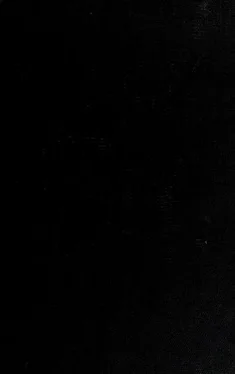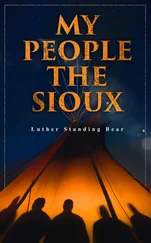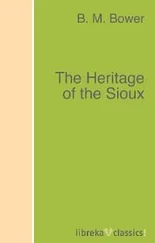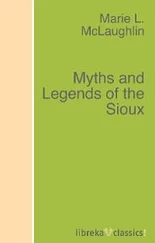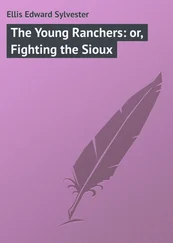Satterlee, P - Narratives of the Sioux war
Здесь есть возможность читать онлайн «Satterlee, P - Narratives of the Sioux war» весь текст электронной книги совершенно бесплатно (целиком полную версию без сокращений). В некоторых случаях можно слушать аудио, скачать через торрент в формате fb2 и присутствует краткое содержание. Жанр: Старинная литература, на английском языке. Описание произведения, (предисловие) а так же отзывы посетителей доступны на портале библиотеки ЛибКат.
- Название:Narratives of the Sioux war
- Автор:
- Жанр:
- Год:неизвестен
- ISBN:нет данных
- Рейтинг книги:4 / 5. Голосов: 1
-
Избранное:Добавить в избранное
- Отзывы:
-
Ваша оценка:
- 80
- 1
- 2
- 3
- 4
- 5
Narratives of the Sioux war: краткое содержание, описание и аннотация
Предлагаем к чтению аннотацию, описание, краткое содержание или предисловие (зависит от того, что написал сам автор книги «Narratives of the Sioux war»). Если вы не нашли необходимую информацию о книге — напишите в комментариях, мы постараемся отыскать её.
Narratives of the Sioux war — читать онлайн бесплатно полную книгу (весь текст) целиком
Ниже представлен текст книги, разбитый по страницам. Система сохранения места последней прочитанной страницы, позволяет с удобством читать онлайн бесплатно книгу «Narratives of the Sioux war», без необходимости каждый раз заново искать на чём Вы остановились. Поставьте закладку, и сможете в любой момент перейти на страницу, на которой закончили чтение.
Интервал:
Закладка:
stock and crops, which though small were very valuable to the settlers who were defying the savages and holding to their homesteads. On the 3rd of July I had gone to the village to spend the Fourth, and father and my brother Chauncey had taken my place at the farm and on that evening were out hunting for deer. About an hour before sundown they were a strong two miles northwest from the farm, on a road running by a marshy lake (there were a number of such marshes or lakes called by the Indians "Scattered lake"); and at the point described there was a low place where the water crossed the road in the spring, and just beyond the ground rose again. Farther on was a bend where the road bore away to the right to pass around the lake, and at the opposite side from the marsh there was a blackberry patch of considerable size. Where the road ran out into the clearing, it was some distance of open brush to the dry run. Father and Chauncey walked into this open space for several rods in plain sight of the patch, when suddenly they observed an Indian jump on his pony and then off on the other side from them. Providentially, the Indian had not observed them, and they immediately sought cover in the brush and laid their plans; for to see an Indian meant death to him or his white enemy in those days.
Father was past sixty-three years old, but he was a true frontiersman, and brother Chauncey was not behind in frontier training. They had hurriedly noticed that there were two Indians and did not know but that there were more. After consultation Chauncey took a position which covered the road between them and the Indians. Kneeling on one knee, with his rifle cocked, he held his position while father crept forward and to the left till he got a poplar tree in the blackberry patch in direct line between him and the Indians. He then went forward to the poplar which was covered with vines, and from this vantage point, at a distance of about thirty-five feet, he shot the larger one of the two Indians (Little Crow), the ball entering the left groin. Both Indians and father went to the ground at the shot, and all was quiet as death, while each was trying to locate the other. Father was armed with a Colt revolver and thought he would try another shot at them with this, but he was not expert in its use and concluded to keep it for close quarters, if necessary.
The Indians seemed unable to locate the spot from which the shot had come, but father knew that the smoke from the black powder would soon rise from the tree and realized that he must get away from there. He had crawled back in his own path for about two rods when they riddled the tree with shot. It was afterward found that one slug and thirteen buckshot had struck it. One buckshot struck father on the left shoulder, as he was crawling away on hands and knees, which made a slight flesh wound about four inches in length; this caused him to change his course and get out of the line of fire. He turned squarely to the right and went a few feet, and then he
NARRATIVES OF THE SIOUX WAR.
tried to load his rifle but got a bullet several bores too large for the gun; it stuck about five inches from the muzzle, and he could not force it home. Being afraid that his white shirt would be seen by the Indians, he took it off and tucked it inside his trousers from where he subsequently lost it. Crawling to the road, he crossed it and concealed himself in a clump of hazel brush about sixteen feet across. He determined to stay there and to use his revolver if discovered.
Little Crow skulked round the raspberry patqh, following the road, and as he came in range Chauncey saw him and rose to his feet to shoot. Both fired, and so close were the reports together that the roar of Little Crow's shotgun drowned the crack of Chauncey's rifle to father. Little Crow was skulking in the Indian style, leaning far forward, his gun extended, with the butt almost at his shoulder, so as to get instant aim. He shot from the left shoulder, but evidently he did not get his gun to the shoulder before firing, as Chauncey's bullet struck the stock of his gun and then entered the left breast. Passing well through his stooping body, it stopped just inside the skin of his back, only a few inches from where father's bullet had come out. A slug from Litle Crow's shotgun grazed Chauncey's head. Both went to the ground, and Chauncey commenced to reload his rifle, when he discovered that he had no bullets, and then he remembered that on leaving the house father had taken all the bullets from the table and slipped them into his pocket. This also accounts for father getting a bullet too large for his gun, as the rifles were of different caliber or bore.
Being thus unarmed, and not daring to approach the brush where he had seen father go, Chauncey determined on a ruse to draw the Indians away from him, if possible. He crept away a fed rods, then boldly rose up in plain sight and started on a run for Hutchinson. Father could not see this from his place of concealment, nor did he know the effect of Little Crow's shot. He did know that the Indian had fallen not ten feet from where he lay, and he could hear his groans of anguish, and he lay perfectly still waiting events. After a time the son Wo-wi-napa came up to his father, and they talked for nearly an hour before the chief died. Father, not understanding the Sioux language, could not know what was said, but he heard the son mount the pony and ride away. He had placed a new pair of moccasins on his father's feet, and on leaving threw away his own single-barreled shotgun and took the double-barreled gun of his father. The single-barrel gun was afterward found by scouts.
After all sounds had died out father crept away, and he finally reached Hutchinson about four o'clock the next morning. In the meantime, Chauncey had reached town about ten o'clock at night, and on hearing the news a party of thirteen soldiers and five civilians was organized to go to the scene of trouble. I accompanied them out to our homestead, where we waited till nearly daybreak and then went on to the place of the shooting. As I was familiar with every foot of
the ground, from having hunted over it time and again, I was slightly in advance, leading the party.
On arriving at the turn in the road I saw a body lying at my feet in the dull light of morning, and I was terror-stricken with the thought that it was father, but it flashed through my mind that the bare breast was copper-colored and not that of a white man, and without a second glance I shouted, "Here he is, boys." We soon found the shirt which father had lost, and some thought he had been killed, but from the bullet holes in the shirt I knew that wound had been a slight one, though I could not know but that he had been killed later. We could not find him nor any more Indians, so we took up the trail of the pony. Before we had gone a great way we were overtaken by a troop of soldiers scouting for Indians, and they kept on the trail while we returned to town. While we were gone, father had returned from town to the place of shooting, with a neighbor and his team to take the body into town. When he arrived at the body he found that the troop in passing had taken the pains to scalp the Indian, probably to get the reward offered by the state at that time for Indian scalps. They placed the body in the wagon and drove back to Hutchinson, all unaware that the corpse was that of the hated Little Crow.
The fact that there was one more "good Indian" was enough to add to the joy of the celebration of the "Fourth." Among those in attendance was Hiram Cummins, a private of Company E, Ninth Minnesota Volunteers, who at once declared that the body was that of Little Crow. Many treated his statement as a joke, but he said, "There is no doubt about it. Here are marks that no man could mistake. He has a row of double teeth all the way around, and both his wrists are broken and ill set." On pulling up the skunk skins from the wrists the truth was apparent, though hard to think true.
Читать дальшеИнтервал:
Закладка:
Похожие книги на «Narratives of the Sioux war»
Представляем Вашему вниманию похожие книги на «Narratives of the Sioux war» списком для выбора. Мы отобрали схожую по названию и смыслу литературу в надежде предоставить читателям больше вариантов отыскать новые, интересные, ещё непрочитанные произведения.
Обсуждение, отзывы о книге «Narratives of the Sioux war» и просто собственные мнения читателей. Оставьте ваши комментарии, напишите, что Вы думаете о произведении, его смысле или главных героях. Укажите что конкретно понравилось, а что нет, и почему Вы так считаете.
